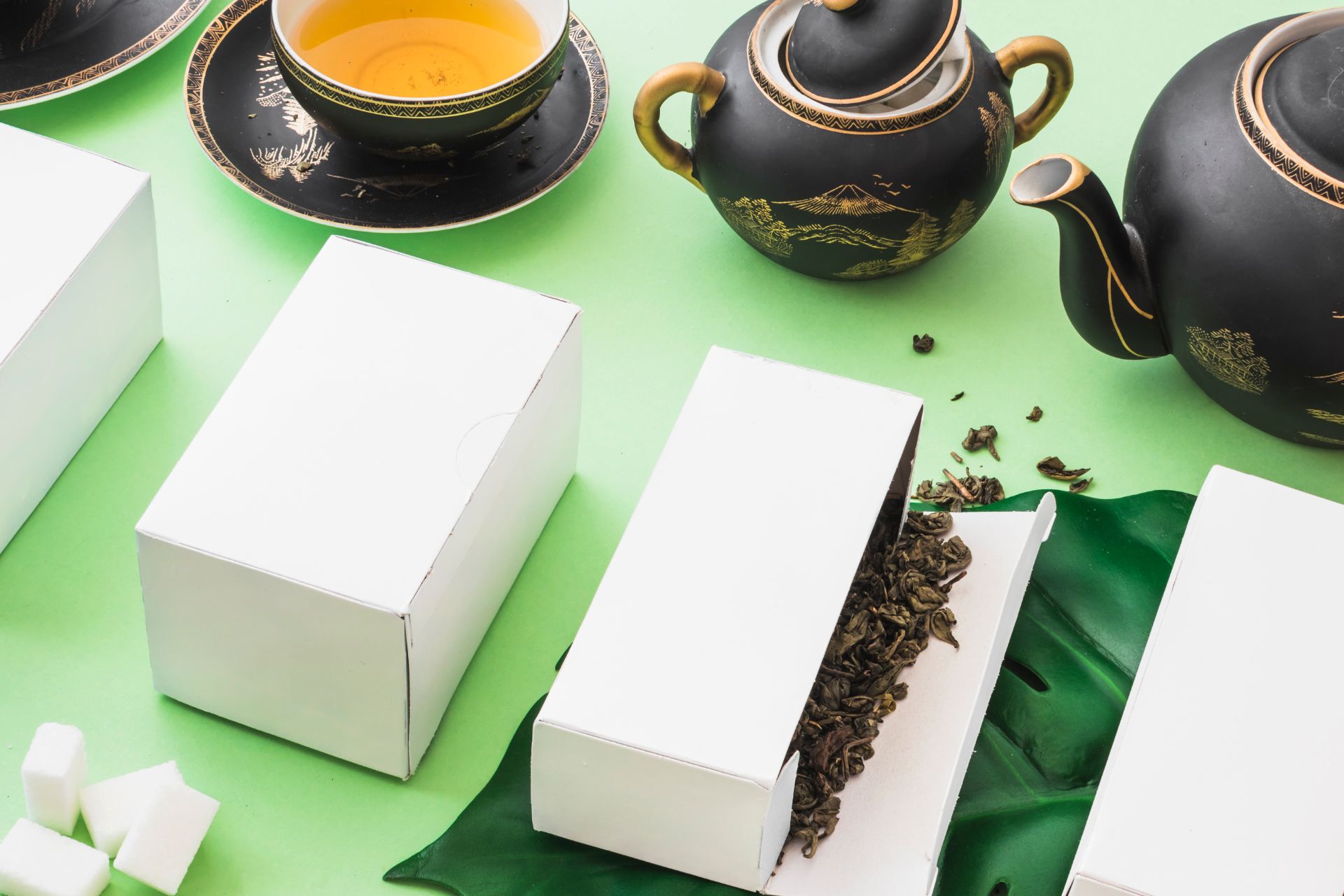
As environmental awareness grows, consumers are increasingly drawn to brands that prioritize sustainability, and the tea industry is no exception. Sustainable tea packaging is emerging as a powerful trend, reshaping how tea is produced, packaged, and enjoyed. From biodegradable materials to zero-waste initiatives, here’s how sustainable packaging is influencing the tea industry.
Why Sustainable Packaging Matters
Traditional tea packaging often uses plastic-based materials and non-recyclable components, which contribute to environmental waste. By contrast, sustainable packaging uses eco-friendly materials that minimize the carbon footprint and reduce waste.
Benefits of Sustainable Tea Packaging:
- Reduces Plastic Waste: Switching to biodegradable or compostable materials can help reduce the global plastic crisis.
- Supports Eco-Conscious Brands: Sustainable packaging aligns with the values of environmentally conscious consumers, creating brand loyalty.
- Improves Recycling Rates: Using recyclable or compostable packaging makes it easier for consumers to dispose of tea packaging responsibly.
By focusing on sustainable packaging, tea brands can significantly reduce their environmental impact and appeal to eco-conscious consumers.
Popular Sustainable Packaging Materials
The shift toward sustainable tea packaging has led to the development of several eco-friendly materials that are both functional and environmentally responsible.
- Biodegradable Tea Bags
Traditional tea bags often contain plastic, which can take hundreds of years to decompose. Biodegradable tea bags, made from plant-based fibers like corn starch or abaca, break down naturally, reducing waste. - Compostable Pouches
Compostable pouches are crafted from materials like kraft paper and biodegradable plastics that break down in composting conditions. These pouches can be used for loose-leaf tea and are a great alternative to traditional plastic packaging. - Recyclable Aluminum Tins
Aluminum tins are highly recyclable and offer excellent protection for tea, preserving its freshness and flavor. Many premium tea brands use aluminum tins as an eco-friendly and reusable option. - Glass Jars
Glass jars are another reusable, recyclable choice for tea packaging. They are durable, provide excellent storage, and can be refilled by customers, supporting a zero-waste approach. - Minimalist Packaging
Minimalist packaging reduces the use of unnecessary materials, focusing instead on the essentials. By reducing waste, brands can create eco-friendly packaging that is both functional and appealing.
These materials help tea brands offer sustainable options without sacrificing quality or product safety.
Brands Leading the Way in Sustainable Tea Packaging
Several tea brands are embracing sustainable packaging as a core part of their mission, setting an example for the rest of the industry. Here are a few brands making a difference:
- Pukka Herbs: Pukka Herbs uses organic, plastic-free tea bags and recyclable cardboard packaging to reduce waste.
- Numi Organic Tea: Numi is committed to using compostable, plant-based tea wrappers and has also introduced plastic-free tea bags.
- Teapigs: Teapigs is known for its plastic-free, biodegradable tea bags made from cornstarch, and it prioritizes recyclable packaging.
- Clipper Tea: Clipper offers unbleached, plastic-free tea bags, and its packaging is 100% biodegradable, making it a popular choice among eco-conscious tea drinkers.
These brands are leading the charge in sustainable packaging, proving that it’s possible to offer quality tea while protecting the environment.
The Environmental Impact of Sustainable Tea Packaging
Switching to sustainable tea packaging has a positive impact on the environment. Here’s how eco-friendly packaging benefits the planet:
- Reduces Landfill Waste: By using biodegradable or compostable materials, sustainable packaging reduces the amount of waste sent to landfills.
- Lowers Carbon Emissions: Sustainable materials often require less energy to produce, reducing carbon emissions associated with manufacturing.
- Supports Biodiversity: Reducing plastic pollution helps protect ecosystems and biodiversity, particularly in areas where plastic waste disrupts natural habitats.
The shift to sustainable packaging demonstrates how small changes in the tea industry can have a big impact on the environment.
FAQs: Sustainable Tea Packaging
Are all tea bags biodegradable?
No, traditional tea bags often contain plastic, which isn’t biodegradable. Look for tea brands that use plant-based, biodegradable tea bags.
How can I identify sustainable tea packaging?
Look for labels such as “biodegradable,” “compostable,” or “100% recyclable.” Some brands also include certifications like USDA Organic or FSC (Forest Stewardship Council) to indicate eco-friendly practices.
Can I compost tea packaging at home?
Some compostable tea bags and pouches can be composted at home, but it’s important to check if the materials are suitable for home composting. Industrial composting facilities may be needed for certain types.
kaging
Are all tea bags biodegradable?
No, traditional tea bags often contain plastic, which isn’t biodegradable. Look for tea brands that use plant-based, biodegradable tea bags.
How can I identify sustainable tea packaging?
Look for labels such as “biodegradable,” “compostable,” or “100% recyclable.” Some brands also include certifications like USDA Organic or FSC (Forest Stewardship Council) to indicate eco-friendly practices.
Can I compost tea packaging at home?
Some compostable tea bags and pouches can be composted at home, but it’s important to check if the materials are suitable for home composting. Industrial composting facilities may be needed for certain types.
Conclusion: Embracing a Greener Tea Experience
Sustainable tea packaging is more than a trend—it’s a shift towards a more eco-friendly tea industry that values quality and environmental responsibility. As more brands adopt sustainable practices, consumers can enjoy their favorite teas with the knowledge that they’re supporting a greener planet. Whether you’re choosing biodegradable tea bags or refillable tins, every small step counts toward a healthier environment.
Choose tea that aligns with your values, and savor the benefits of a more sustainable sip!




